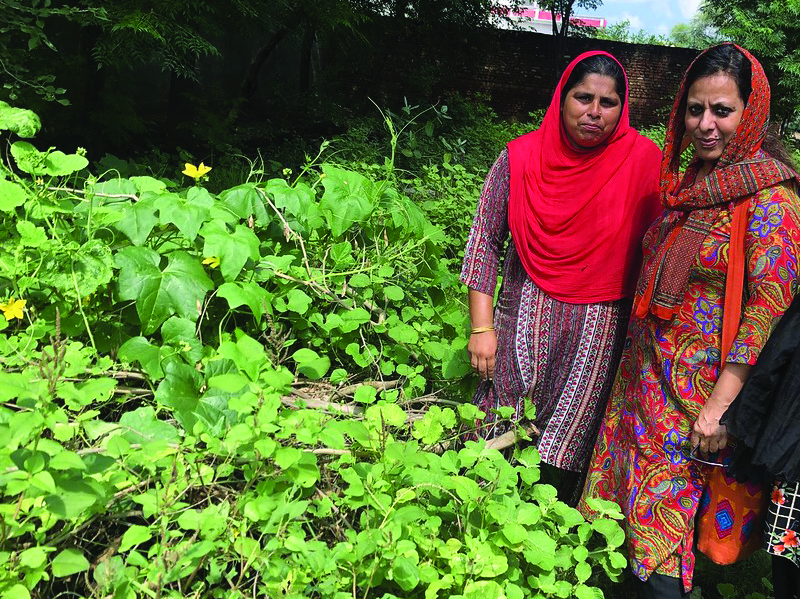
BGR partner Building Bridges India works in Sangrur, India, to support and empower the widows of men who committed suicide because of poverty and indebtedness. Soaring interest rates and harassment from banks to repay their husbands’ loans often force the women to sell their land and homes in order to support their families in the short term. While most are eager to find gainful employment, non-agricultural job opportunities for women are limited, leaving the widows and their families facing economic hardship.
This project will provide poor rural women, particularly widows, with training in the cultivation of nutritious fruits, herbs, and vegetables and the skills to sell some of their produce on the market. Participants will also learn about the impact of chemical farming on health and the environment; the ingredients of a healthy diet; fundamentals of food conservation and preparation; and the packaging, marketing, and sales of homemade products. The trainings will serve 200 beneficiaries, most of them women. Annually renewable project.

BGR partner Building Bridges India works in Sangrur, India, to support and empower the widows of men who committed suicide because of poverty and indebtedness. Soaring interest rates and harassment from banks to repay their husbands’ loans often force the women to sell their land and homes in order to support their families in the short term. While most are eager to find gainful employment, non-agricultural job opportunities for women are limited, leaving the widows and their families facing economic hardship.
This project will provide poor rural women, particularly widows, with training in the cultivation of nutritious fruits, herbs, and vegetables and the skills to sell some of their produce on the market. Participants will also learn about the impact of chemical farming on health and the environment; the ingredients of a healthy diet; fundamentals of food conservation and preparation; and the packaging, marketing, and sales of homemade products. The trainings will serve 200 beneficiaries, most of them women. Annually renewable project.




